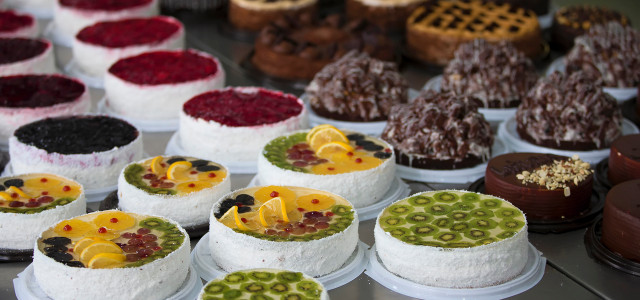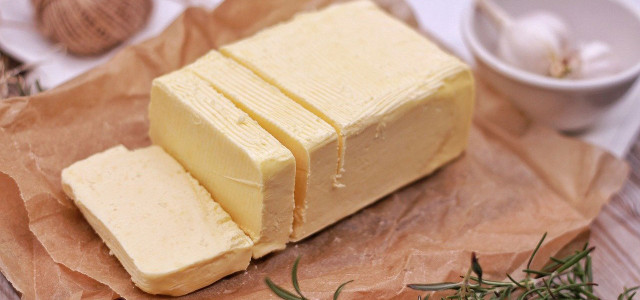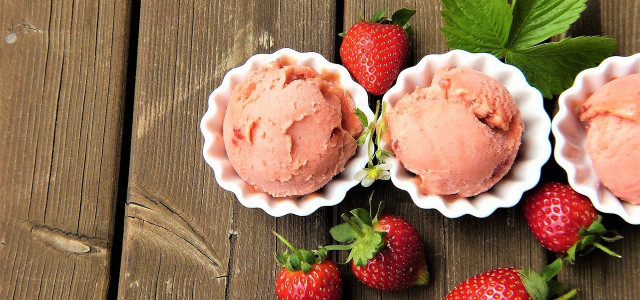Avoid gelatin made from grisly animal bi-products with our handy guide to the six best vegan gelatin substitutes and how to use them effectively.
So what is gelatin exactly? Conventional gelatine is a by-product of slaughtering in the meat and leather industries. The gelling agent is derived from collagen taken from animal body parts — producers primarily make use of remains such as pork skins, pork and cattle bones, or split cattle hides when manufacturing the chemical. Processed gelatin can also be sourced from poultry or fish remains.
What is Gelatin Used For — And Why Replace It?
The food industry uses gelatin as a thickening agent to produce a creamy to firm consistency. These substances are particularly useful as they add to the thickness of a liquid without changing any of its other valued properties. This is one reason why we commonly find gelling agents in a wide range of desserts, sweets, dairy products, or sauces and soups. But even juices, wines, or medicines can be produced with the help of gelatin.
Some of the most common food products containing gelatin are gelatin desserts (e.g. Jell-O, jelly shots or cubes) and side dishes (e.g. jello salads), trifles, marshmallows, candy corn, and sweets such as gummy bears and fruit snacks. Gelatin may also find use as a stabilizer, thickener, or texturizer in foods such as yogurt, cream cheese, and margarine.
Depending on the precise product in question, you may find the chemical gelatin specified in ingredients lists under any other of the following names:
- bovine gelatin (type B gelatin)
- fish gelatin
- porcine gelatin (type A gelatin) – sourced from swine
- food-grade gelatin
- edible gelatin
- kosher fish gelatin
- dried fish gelatin
- bloom fish gelatin
- HMW fish gelatin
- gelatine
Considering what gelatin is made of, it’s pretty clear that this thickener and anything containing it is completely off the table for vegans and vegetarians. However, steering clear of gelatin – or finding vegetarian gelatin substitutes – can sometimes be easier said than done. Below, we list the six most important vegan gelatin substitutes to use when cooking, for DIY cosmetics, or to look for in ingredient lists of products you want to buy.
1. Carrageenan as a Vegan Gelatin Substitute
Carrageenan has been used as a gelling agent and thickener in traditional British foods for hundreds of years. It is a vegan gelatin substitute derived from edible red seaweed which is native to the British Isles and is also found in certain types of algae. This ingredient is normally used in the production of non-dairy milk, jellies, and puddings. Carrageenan is a great gelatin alternative that works best in recipes for diet sodas, desserts, vegan creams, and vegan ice-cream recipes. It is also a great thickener that can be used for sauces.
This versatile plant-based gelatin works surprisingly well in homemade cosmetics such as shampoos and skin creams. Carrageenan also boasts some medical benefits and is often used in the treatment of persistent coughs and bronchitis, skin irritations, and intestinal problems.
2. Pectin: Gelatin Alternative Made From Fruit
Pectin is extracted from citrus fruits, and is an ideal vegan-friendly gelatin substitute for jams, marmalades, and jellies. Rich in dietary fiber pectin is also great in dessert fillings, confectionery, and medicines. Fruit juices and non-dairy milk recipes will often utilize some pectin as a stabilizer. Pectin is said to offer some health benefits of its own, like lowering cholesterol, improving blood sugar levels, relieving intestinal complaints, and helping promote a healthy body weight.
3. Cornstarch: Not Just for Baking
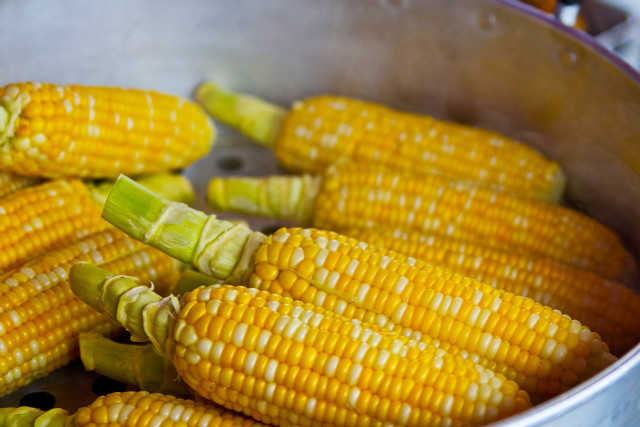


(Foto: CC0 / Pixabay / keem1201)
Cornstarch is a common ingredient made from the starchy part of corn kernels, making it an ideal vegan gelatin substitute. Cornstarch is a thickening agent that can replace gelatin in an array of recipes for gravies, marinades, sauces, casseroles and even helps to thicken stews and soups.
Cornstarch also has a few extra surprising uses in the home. For example, it is an important ingredient of homemade deodorants and dry shampoo. It can be used in matte nail polishes and as a preventative for athlete’s foot. Plus it’s said to relieve various skin conditions: bug bites, chafing, irritations, and blistering.
4. Guar Gum: Vegan Gelatin From the Guar Bean
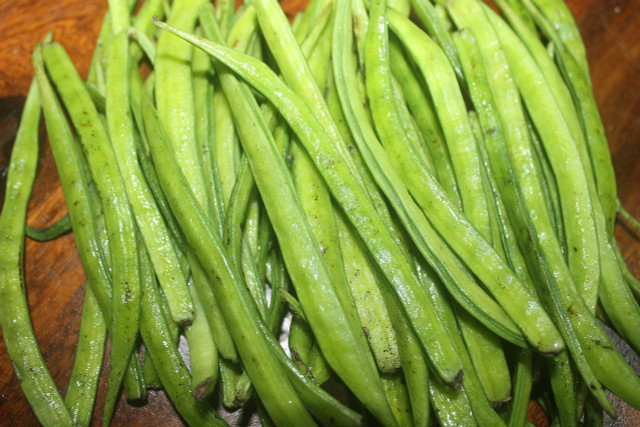


(Foto: CC0 / Pixabay / RikkyLohia)
Another plant-based gelatin substitute worth a mention is Guar Gum. It improves the melting capabilities of ice cream, thickens soups and gravies, improves texture and moisture retention in pasta and the texture of sauces and dressings. Guar is indispensable when it comes to baked goods, as it improves bread texture while at the same time contributing to both dough yield and the extension of shelf life. It serves as an excellent binding agent for ingredients found in gluten-free recipes and is a good thickener in batter. Guar gum’s unique properties make it ideal for use in soap recipes. You’ll also find it in shaving creams, where it helps decrease friction from razors and helps to soften both skin and hair.
However, guar gum is extracted from the seeds of the guar bean, which is mostly grown in India and Pakistan. So this vegan substitute for gelatin is generally transported a long way before it ends up in our supermarkets. If you are looking for a vegan gelatin substitute to use in a recipe, we recommend trying other options before opting for this one.
5. Arrowroot: A Versatile Ingredient
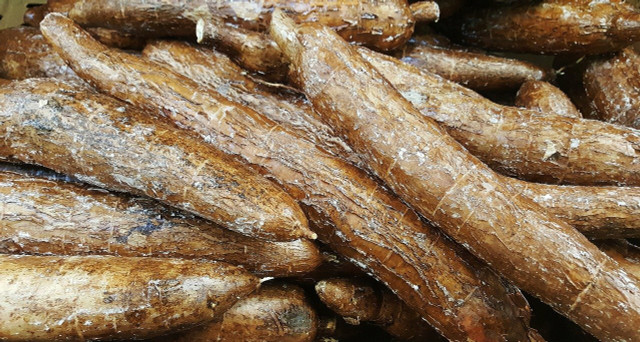


(Foto: CC0 / Pixabay / Brett_Hondow)
Arrowroot has been used for many years as a (vegan) gelatin substitute due to its versatility. Whether it is used as a thickening agent for sauces, puddings, and jellies or as an ingredient for cookies and cakes, arrowroot is also popular as a replacement for wheat flour in gluten-free recipes. Similar to cornstarch, arrowroot is also a useful plant-based ingredient for DIY dry shampoo, deodorant, talcum powder, and other homemade cosmetics.
The plant is native to Mexico, but also to countries like India, Brazil, and Thailand. When buying arrowroot for cooking, try to shop as regionally as possible and look for organic brands.
6. Agar-agar: Vegan Gelatin Derived From Red Algae
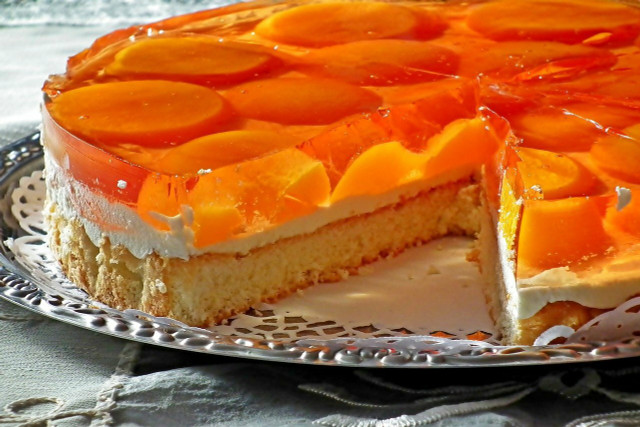


(Foto: CC0 / Pixabay / MrGajowy3)
Agar-agar is another plant-based alternative to conventional thickeners and gelling agents that you will definitely find useful. Similar to carrageenan, agar-agar is dervied from certain types of red algae. Like the other vegan gelatin substitutes mentioned already, agar-agar has a place in both sweet and savory foods such soups, sauces, or preserves. It also boasts some purported health benefits, often being used for relieving intestinal problems thanks to its 80 percent fiber content.
Read on:
- What is Agar Agar and How Do You Use It?
- 5 Vegan Gummy Bear Brands – and Ones That Are Not
- Why Wine Isn’t Always Vegan
Do you like this post?






